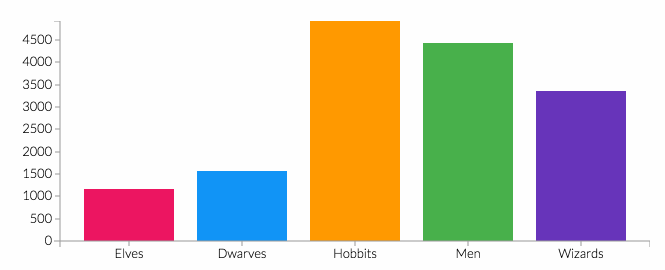EFEKTIVITAS KOMPETENSI PEDAGOGIK GURU PENDIDIKAN AGAMA ISLAM TERHADAP HASIL BELAJAR SISWA MATA PELAJARAN PAI
DOI:
https://doi.org/10.33853/jm2pi.v4i2.721Keywords:
Pedagogic Competence, Learning Outcomes of Islamic Religious Education.Abstract
The purpose of this study was to determine the Effectiveness of the Pedagogical Competence of Islamic Religious Education Teachers on the Learning Outcomes of Class VIII Islamic Religious Education Subjects at SMPN 1 Kresek Tangerang.This research is a research using descriptive qualitative method. The subjects of this study were the Principal of SMP Negeri 1 Kresek, Deputy Head of Curriculum for SMP Negeri 1 Kresek and students of SMP Negeri 1 Kresek. Methods of data collection by observation, interviews and documentation. Test the validity of the data through triangulation and then analyze the data using the techniques of data collection, data reduction, data display and conclusion drawing ferryfing.The results of this study indicate that the Pedagogical Competence of teachers at SMPN 1 Kresek is already classified as having fairly good competence and most of the students have met the Minimum Completeness Criteria (KKM) standards in learning outcomes in Islamic Religious Education subjects.References
Danar Gayuh Utama, & Heldisari, H. P. (2021). Pembelajaran Dinamika
Pada Ansambel Gitar Ditinjau Dari Aspek Afektif, Kognitif, dan
Psikomotor. Journal of Music Education and Performing Arts (JMEPA), 1(1),
–22.
http://jurnal.fkip.unila.ac.id/index.php/JMEPA/article/view/22741
Fitrah Mawardi, A., & Pasiska, N. (2021). Cognitive and affective factor in learning
proses (Faktor Kognitif dan Afektif dalam Proses Pembelajaran). 357–373.
Hasanah, N. (2022). Efektivitas Kompetensi Pedagogik Guru di SDN
Tontowea Kecamatan Petasia Barat Kabupaten Morowali Utara. Linear :
Jurnal Ilmu Pendidikan, 6(1), 54–64.
https://doi.org/10.53090/jlinear.v6i1.301
Huljannah, Em. (2021). Pentingnya Proses Evaluasi Dalam Pembelajaran Di
Sekolah Dasar. 2(2), 164–181.
Irawati Hayuningkyas. (2021). Implikasi Kompetensi Profesional Guru
Terhadap Efektivitas Pengelolaan Pembelajaran. Irfani Jurnal Pendidikan
Islam, 17(2), 179–188.
https://journal.iaingorontalo.ac.id/index.php/ir/article/view/2506/13
Iryanto, N. D. (2021). Proses Penilaian Hasil Belajar Kurikulum 2013 di
Sekolah Dasa. Jurnal Basicedu, 5(5), 3829–3840.
Lafendry, F. (2023). Teori Pendidikan Tuntas Mastery Learning Benyamin S.
Bloom Ferdinal Lafendry. Stai-Binamadani.e-Journal.Id/Tarbawi, 6(1), 1–
Magdalena, I., Afianti, N. A., & Yanti, A. A. (2020). Penilaian Hasil Belajar
Siswa Dengan Kurikulum 2013 Di Sd Islam Asysyakirin. Jurnal
Pendidikan Dan Dakwah, 2(3), 466–476.
https://ejournal.stitpn.ac.id/index.php/pandawa
Mathematics, A. (2016). Pembelajaran Berbasis Riset:Dasar Teori,.
Mulyadi, A. (2011). Kontribusi Kompetensi Pedagogik dan Iklim Organisasi
terhadap Kinerja Guru. Turats, 7(2), 49–61.
https://jurnal.unismabekasi.ac.id/index.php/turats/article/view/913/7
%0Ahttp://jurnal.unismabekasi.ac.id/index.php/turats/article/view/
Sudrajat, J. (2020). Kompetensi Guru Di Masa Pandemi Covid-19. Jurnal Riset
Ekonomi Dan Bisnis, 13(2), 100.
https://doi.org/10.26623/jreb.v13i2.2434
Sugian Noor. (2020). Penggunaan Quizizz Dalam Penilaian Pembelajaran
Pada Materi Ruang Lingkup Biologi Untuk Meningkatkan Hasil Belajar
Siswa Kelas X.6 SMA 7 Banjarmasin. Jurnal Pendidikan Hayati, 6(1), 1–7.
Widiyanto, D., & Istiqomah, A. (2020). Evaluasi Penialian Proses dan Hasil
Belajar Mata Pelajaran PPKn. Citizenship Jurnal Pancasila Dan
Kewarganegaraan, 8(1), 51–61. http://ejournal.unipma.ac.id/index.php/citizenship/article/view/5385





